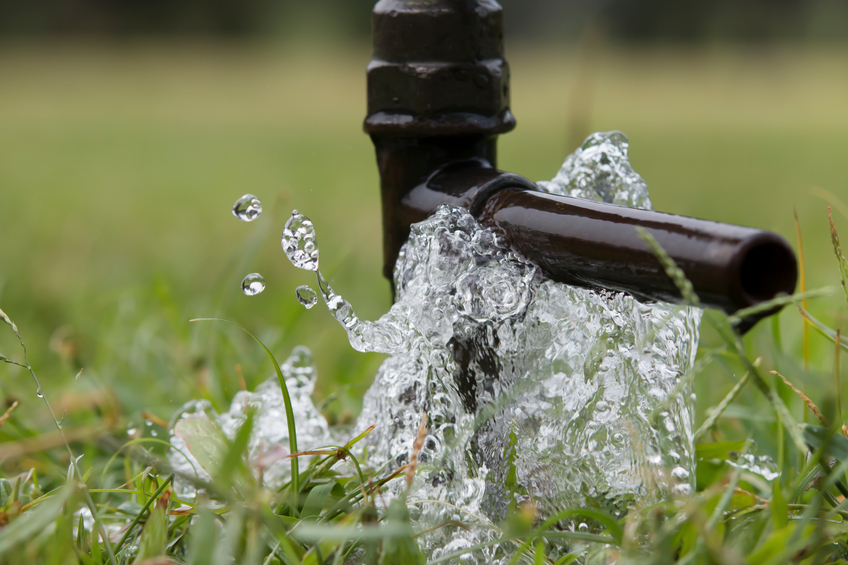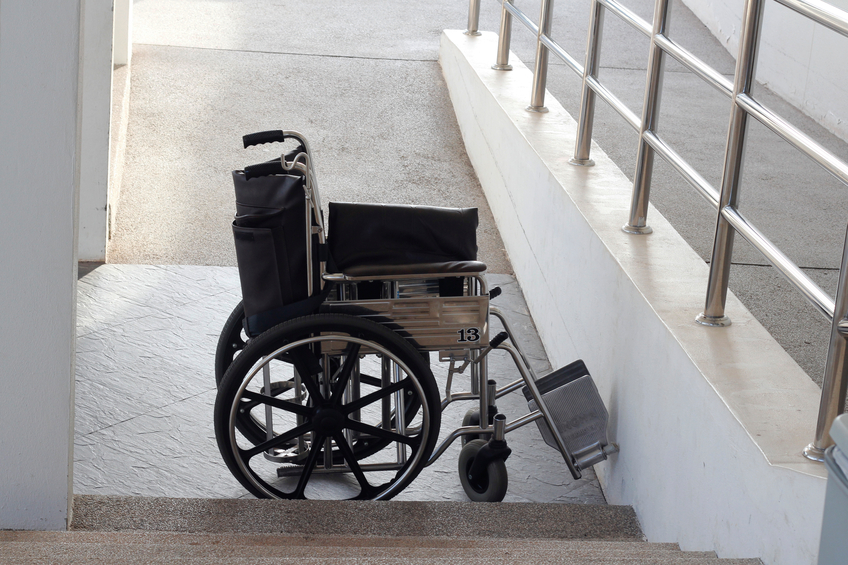Louisiana Chemical, ADA and Ethics 15 PDH Discount Package 2
Courses in this Package
Chemical Hazard Classification Process (H02-009)
Disinfection with Peroxone (H02-010)
Algal Indicators in Streams (H03-007)
Building Field Capabilities to Respond to Drinking Water Contamination (H03-009)
Americans with Disabilities Act (ADA) Overview (A02-005)
Public Right of Way Accessibility Guidelines (PROWAG) (C02-041)
Ethical Issue: Deciding if Something is a Gift or a Bribe (LE1-007)

This online engineering PDH course addresses the identification of the chemicals to be classified; explains the process of data collection and describes the process and information needed for data analysis. Furthermore, this course presents information on the rationale used to develop the classification of the various hazards.
OSHA's Hazard Communication Standard (HCS) is designed to protect against chemical-source injuries and illnesses by ensuring that employers and workers are provided with sufficient information to anticipate, recognize, evaluate, and control chemical hazards and take appropriate protective measures. The purpose of the Hazard Communication Standard is to ensure that the hazards of all chemicals produced or imported are classified, and that the information on the hazardous chemicals is transmitted to employers and workers.
The 2 PDH online course is intended for chemical manufacturers and distributors, employers, engineers, physicians, construction workers, and all other personnel who are interested in learning more about chemical hazard classification process.
This PE continuing education course is intended to provide you with the following specific knowledge and skills:
- Learning how to identify the chemicals to be classified
- Understanding the data collection process
- Learning how to analyze the data or findings
- Knowing how to record the findings
Upon successful completion of the quiz, print your Certificate of Completion instantly. (Note: if you are paying by check or money order, you will be able to print it after we receive your payment.) For your convenience, we will also email it to you. Please note that you can log in to your account at any time to access and print your Certificate of Completion.

This online engineering PDH course provides guidance on the use of this rapid, strongly oxidizing process.
Addition of hydrogen peroxide to ozonated water increases the rate of ozone decomposition and generates hydroxyl free radicals in what is known as the peroxone advanced oxidation process.
This 2 PDH online course is intended for civil, environmental, and chemical engineers who are interested in gaining knowledge about the use of the ozone/hydrogen peroxide combination known as peroxone for disinfection and oxidation. However, this course could appeal to engineers of other disciplines as well.
This PE continuing education course is intended to provide you with the following specific knowledge and skills:
- Understanding the chemistry of the peroxone disinfection/oxidation process
- Learning the similarities and differences between the molecular ozone and peroxone processes
- Familiarizing with general guidelines for the application of the peroxone process
- Understanding the advantages and disadvantages of peroxone use in comparison with other disinfection/oxidation processes
In this professional engineering CEU course, you need to review Chapter 7 titled, "Peroxone (Ozone/Hydrogen Peroxide)", which is part of the EPA Guidance Manual, "Alternative Disinfectants and Oxidants".
Upon successful completion of the quiz, print your Certificate of Completion instantly. (Note: if you are paying by check or money order, you will be able to print it after we receive your payment.) For your convenience, we will also email it to you. Please note that you can log in to your account at any time to access and print your Certificate of Completion.

This online engineering PDH course summarizes the application of algae as indicators of nutrient pollution in water quality management. It describes the use of algal indicators to develop water quality diagnostics for nutrient pollution in the United States (U.S.) and then reviews scientific developments in the use and application of algal indicators across the world.
Algae are ubiquitous and essential components of all stream ecosystems. They are the primary energetic source for many stream food webs, fixing carbon from the atmosphere through photosynthesis, which is then transmitted through the web via consumer pathways.
Algae have a long history of use and possess many of the features valued in ecological indicators. They were part of the early saprobien indicator system development in Germany and were one of the first assemblages developed for use in biological assessment in the United States.
This 3 PDH online course is intended for chemical and environmental engineers and water quality professionals who are seeking to utilize algae to detect the presence of nutrient pollution and to estimate the risks of nutrient pollution in adversely affecting the condition of stream ecosystems.
This PE continuing education course is intended to provide you with the following specific knowledge and skills:
- Gaining general background information on algae
- Familiarizing with the current algal sampling programs in the United States
- Learning about the research on algal assessment and indicator using in streams
- Identifying the quantitative and qualitative algal application methods
Upon successful completion of the quiz, print your Certificate of Completion instantly. (Note: if you are paying by check or money order, you will be able to print it after we receive your payment.) For your convenience, we will also email it to you. Please note that you can log in to your account at any time to access and print your Certificate of Completion.

This online engineering PDH course provides guidance on building field capabilities in order to respond to the contamination of drinking water. The course also provides planning and implementation guidance, templates, customizable report forms, and other documentation for Sampling and Analysis (S&A) activities.
When performed in response to possible or credible drinking water contamination, the goal of Sampling and Analysis (S&A) is to confirm or rule out contamination through field and laboratory testing. It is one of the earliest utility-led activities initiated when the utility has activated its drinking water contamination response plan and continues throughout remediation and recovery if contamination is confirmed.
This 3 PDH online course is intended for chemical and environmental engineers as well as others who are interested in learning more about building field capabilities in order to respond to the contamination of drinking water.
This PE continuing education course is intended to provide you with the following specific knowledge and skills:
- Familiarizing with planning and documentation for visual site hazard assessment, sample collection, and sample packaging and shipping
- Familiarizing with planning and documentation for site safety screening, rapid field testing, and hazardous materials packaging and shipping
- Understanding the staffing requirements to perform basic and advanced field activities
- Taking into consideration field response health and safety
- Familiarizing with quality assurance and quality control
- Understanding emergency response procedures
- Familiarizing with the considerations for preparation, placement, and contents of emergency response sampling and analysis kits
Upon successful completion of the quiz, print your Certificate of Completion instantly. (Note: if you are paying by check or money order, you will be able to print it after we receive your payment.) For your convenience, we will also email it to you. Please note that you can log in to your account at any time to access and print your Certificate of Completion.

This online engineering PDH course provides an overview of the Americans with Disabilities Act as it applies to facility design.
For individuals with disabilities, the Americans with Disabilities Act gives civil rights protections similar to those provided to individuals on the basis of race, color, sex, national origin, age, and religion. It guarantees equal opportunity for individuals with disabilities in public accommodations, employment, transportation, state and local government services, and telecommunications.
This 2 PDH online course is intended for all engineers involved in the design of facilities accessible to the public and regulated by the
This PE continuing education course is intended to provide you with the following specific knowledge and skills:
- Familiarizing with the types of facilities covered
- Understanding "public accommodation"
- Learning about the various requirements for accessible facilities
- Understanding when a "direct threat" to health or safety is present
- Understanding "readily achievable" barrier removal for existing facilities
- Familiarizing with the legal enforcement mechanisms available
- Learning about available tax credits and deductions for employers
In this professional engineering CEU course, you need to review the course document titled, "American with Disabilities Act (ADA) Overview" which is based on the original document (http://www.ada.gov/qandaeng.htm) published by the U.S. Equal Employment Opportunity Commission of the Civil Rights Division of the U.S. Department of Justice (DOJ), last updated on
Upon successful completion of the quiz, print your Certificate of Completion instantly. (Note: if you are paying by check or money order, you will be able to print it after we receive your payment.) For your convenience, we will also email it to you. Please note that you can log in to your account at any time to access and print your Certificate of Completion.

This online engineering PDH course presents the main requirements for
This 2 PDH online course is applicable to civil engineers, construction managers, architects and inspectors who are involved with construction in the public right of way.
This PE continuing education course is intended to provide you with the following specific knowledge and skills:
- Familiarizing with the government agencies involved with PROWAG
- Understanding which projects require PROWAG compliance
- Knowing the differences between the current ADA requirements and PROWAG
- Learning about PROWAG sidewalk and slope requirements
- Learning about PROWAG curb ramp requirements
- Learning about PROWAG detectable warning requirements
- Understanding practical examples of reconstructing existing conditions to be PROWAG compliant
In this professional engineering CEU course you will review the main requirements of PROWAG along with practical design examples.
Upon successful completion of the quiz, print your Certificate of Completion instantly. (Note: if you are paying by check or money order, you will be able to print it after we receive your payment.) For your convenience, we will also email it to you. Please note that you can log in to your account at any time to access and print your Certificate of Completion.

This online engineering PDH course will establish, through the presentation of many examples, the principles of distinguishing between a gift and a bribe.
The federal government has formulated detailed rules covering gifts given to executive-branch employees in many situations. The rules are published in the Code of Federal Regulations (CFR) and are illustrated through many examples. Even though the examples are intended for government employees (many of whom are engineers), they also apply to private-sector engineers in similar situations. This course presents selected CFR examples that furnish guidance on the ethics of gift giving in situations that are especially relevant to engineers.
This 1 PDH online course is intended for engineers seeking guidance on distinguishing between ethical gift-giving and bribery.
This PE continuing education course is intended to provide you with the following specific knowledge and skills:
- Familiarizing with definitions of a bribe and a gift
- Knowing the bribe status of a gift based on a personal relationship
- Understanding the conditions under which gifts to spouses are acceptable
- Knowing the need to avoid even the appearance of a gift being a bribe
- Recognizing when gifts involving free attendance at meetings and conferences are acceptable
- Understanding the importance of the cumulative effect of receiving even small gifts on a periodic basis
- Learning the importance of gifts received when on assignment rather than outside of work
Upon successful completion of the quiz, print your Certificate of Completion instantly. (Note: if you are paying by check or money order, you will be able to print it after we receive your payment.) For your convenience, we will also email it to you. Please note that you can log in to your account at any time to access and print your Certificate of Completion.